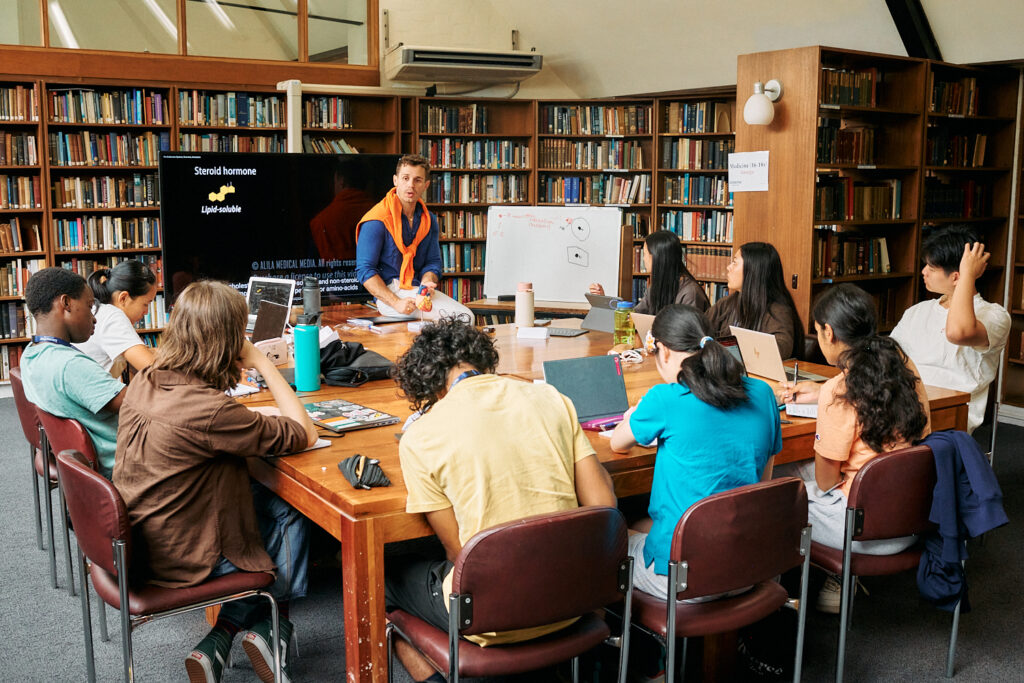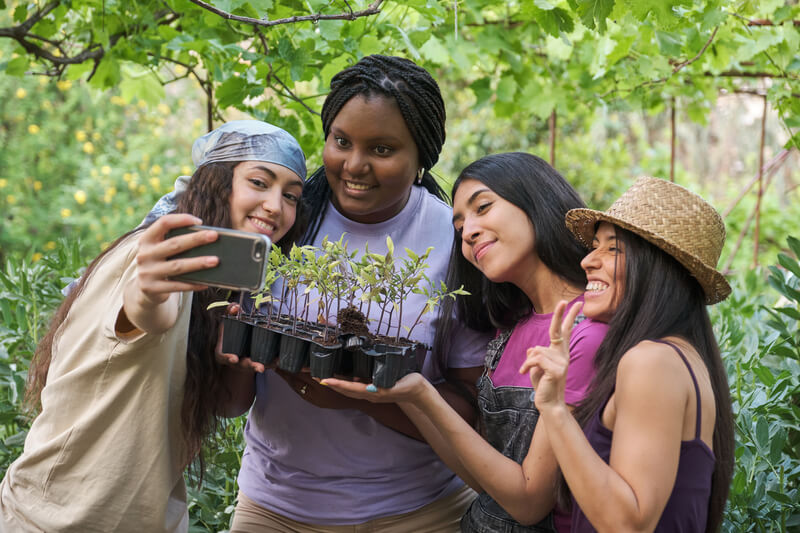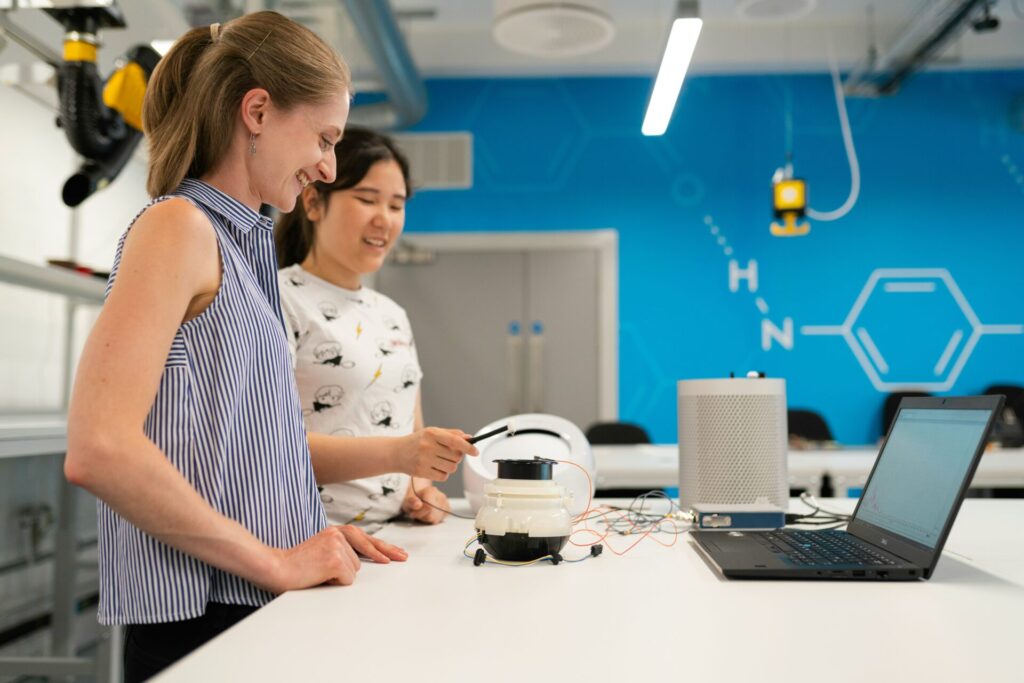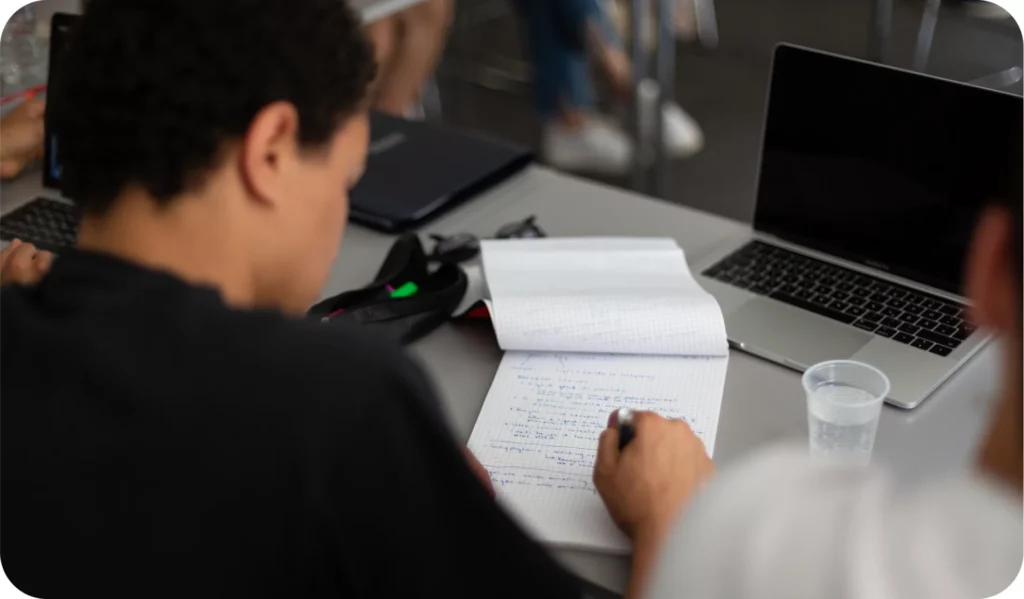Do you ever find yourself daydreaming about your future career but you’re unsure of the right path to get there? Work experience allows you to be a fly on the wall in your chosen industry.
Students get two opportunities to engage in work experience as a part of their education: once in Year 10 and once in Year 12. Taking these opportunities is a really fantastic idea for a wealth of reasons, not least the fact that it looks good on your CV.
In this article, we’ll explore the benefits of a work placement, where to look for opportunities, and how to get work experience for year 10s and year 12s. Let’s dive in.
What is Work Experience?
Work experience refers to a few days or weeks where you work in your chosen field. ‘Work’ here is a loose term because you’ll often only be doing light work or shadowing somebody as you gain practical insights into the field.
Work experience can give you some great insights into your future career, sort of like a taster of what you’ll be doing when you leave school.

Is Work Experience Paid?
Usually, work experience is unpaid. You only do the role for a short time, often just a week, and you don’t take on much responsibility. The primary benefit, rather than payment, is gaining deeper insights into the world of work.
Benefits of Work Experience
Although it’s unpaid, there are tons of benefits to completing work experience. Above all else, you get to test the waters with the career of your choice. If you don’t like it, you can always change your plans!
Alongside that, you have something to add to your CV and UCAS application. Plus, you’ll likely gain some new skills along the way.
Here are the primary benefits of work experience.
It’s Useful for Your UCAS Application or CV
Depending on what you want to study at university, work experience can be useful. For specific professions like teaching, law, or medicine, work experience looks good on your UCAS application and is great for drawing on in your interviews.
Even if you’re not sure about university, work experience looks good on your CV. It can be helpful for landing internships, apprenticeships, and entry-level positions.
An Opportunity to Develop
Throughout your work experience, you might learn quite a lot about yourself even in a short space of time. You can test out career options and find out if you’re suited to different roles.
Furthermore, you can discover what inspires you, learn about your strengths, and find areas for self-improvement. You might even grow closer relationships with the people you know in your chosen field.
Helps You Learn About Your Future Career
The whole point of work experience is to learn about your future career. As a result, you can decide if you like it, or potentially adjust your course to something new.
Later down the line, the skills and connections you develop during work experience can help you get into jobs and internships.
Builds Your Soft Skills
Soft skills are a necessity for university and your future career. Work experience can teach you:
- Organisation and punctuality
- Teamwork and communication
- Problem-solving
- Flexibility and adapting to new environments
These are skills that are useful in any job, so make sure you list them on your CV. It’s helpful to have specific anecdotes from your work experience that highlight these skills.
It’s a Fun Challenge
For many people, work experience is a chance to get out of their comfort zones. It can be a little scary going to work for the first time, but the challenge is part of the fun!
As Morgan Freeman once said, “Challenge yourself: it’s the only path which leads to growth.”
Through this challenge, you’ll gain new confidence and skills that will help you in later life.
Join the Immerse Education 2025 Essay Competition
Follow the instructions to write and submit your best essay for a chance to be awarded a 100% scholarship.

Types of Work Experience
Work experience comes in many forms. You can try to get work experience at any time by arranging your own placement. If you do this during the summer or after year 12, you can spend longer on a placement, which gives you more options.
The types of work experience include:
- Work shadowing: Watching somebody perform their job for a few days.
- Internships: Paid or unpaid work experience that lasts 2-3 months during the summer.
- Placements: Working in an entry-level job role to gain experience, usually for one year. These are often paid.
- Gap year: Working abroad with a company or charity for one year after sixth form.
- Virtual work experience: Doing a virtual placement to gain insights about a job role while working from home.
Generally, Year 10 work experience involves shadowing. However, you can always strike out on your own during the holidays to get extra work experience to show that you’re passionate.
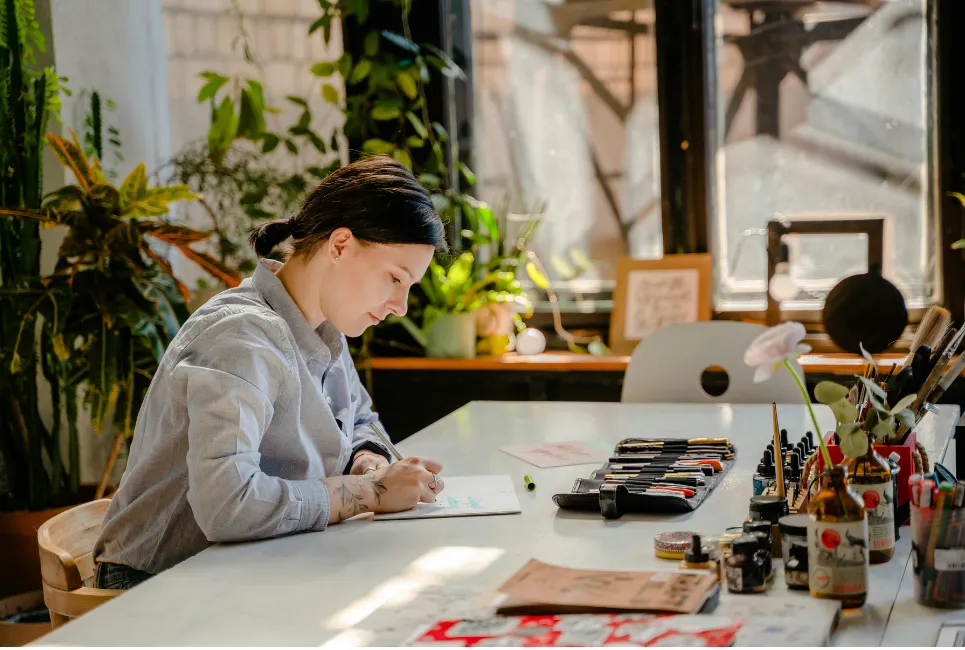
How to Get Work Experience
Landing the right work experience role is no easy feat. In fact, you may need to apply for several positions before you get one. Here’s a great guide for getting work experience.
Start Early and Plan Strategically
Make sure you start planning well in advance. That way, you’re more likely to get the role you want before the slot is filled by somebody else. At the beginning of the year, start to think about the industry you would like to work in. If it’s a competitive field like medicine, start sending out applications months (or even a year) in advance.
You should also develop a strategic plan for work experience. Think about what your goals are and try to find a placement that fits. Your goals may be to:
- Gain experience in a specific profession
- Be in a particular work environment, like an office
- Try a particular skill
- Learn how to interact with customers
By thinking of your goals and industries, you can start to narrow down the right role. Check out the National Careers Service to find information on specific careers and research the ones that interest you.
Need inspiration on how to get work experience? Read our articles: Work experience ideas for year 10 and Work experience ideas for year 12
Choose the Right Place
With your chosen industry in mind, it’s time to look at places you could work. Here are some ideas to get you started, organised by field.
| Art | Galleries and museums, auction houses, art magazines |
| Economics | Banks, think tanks, finance and consultancy firms, accountancy firms, finance departments of large businesses |
| Engineering | Airlines, car manufacturers, energy providers, transport providers |
| English | Magazines, newspapers, book publishers, schools, libraries |
| Geography | NGOs, transport companies, housing companies, local councils |
| History | Libraries, museums, heritage management, schools |
| Languages | Schools, foreign language institutes, translation companies, tourist organisations |
| Law | Law firms, police stations, legal departments at large companies, legal advice charities |
| Maths | Banks, accountancy firms, finance departments of large businesses,software developers |
| Politics | Newspapers and political magazines, local councils, charities |
| Psychology | Schools, hospitals, human resources, marketing companies |
| Sports science | Leisure centres, sports marketing companies, sports event management companies, stadiums, sports clubs |
| Sociology | Charities, marketing companies, schools |
Reach Out to Interesting Employers
Next, compile a list of potential employers in your area. Then, it’s time to start making the rounds. You can start by walking into local businesses, introducing yourself, and asking how to apply for a work placement.
Alternatively, you can reach out online via email. You can email the business’s helpline, or find out who the manager is and reach out via email or LinkedIn. Send a friendly message that introduces yourself, then attach your CV and ask about a work placement. If you don’t hear back after a while, you may want to phone them for a follow-up.
Reaching out might seem intimidating, but it’s often the best way to get a placement. Plus, most businesses are happy to hear from interested students.
Utilise Online Platforms
Some businesses post work experience placements on job boards. Make sure you check out Indeed and LinkedIn, and use the search functions to find work experience opportunities.
You can also try industry-specific job boards, depending on the sector you’re trying to work in.
Online platforms are particularly useful when it comes to virtual work placements, so make sure you keep an eye out. You can also set alerts in advance so that, when the time comes, you can apply quickly.

Network
Networking is one of the easiest ways to get work experience. If you want to know how to get into work experience with no experience, it’s often through networking.
If you know someone who works in a field you enjoy, now is the time to reach out. It could be a family member, or friend, or even a teacher. Even if they can’t give you a placement, they might be able to point you in the right direction.
Remember that, if you choose to take a placement with a family member, you should still formalise the arrangement with a contract.
Also, if you have a career that you’re set on, you can always start networking early. Reach out to relevant figures on LinkedIn and social media, or attend industry events and fairs. Making connections is a great way to get a placement, but it will also help you down the line when you want to enter the job market for real.
Craft a Standout CV and Cover Letter
A CV is essential for work experience. You’ll need to craft a compelling CV to make you stand out from other candidates. Remember that your CV should be specific to the industry you want to work in. There’s no point writing, ‘Excellent knowledge of social media marketing,’ if you’re trying to work in medicine.
Your CV should include details on your education, any prior work experience or volunteering, a list of your skills (both soft and hard), and a short section explaining who you are. The personal statement is important, so don’t overlook it. Try to make the CV short–ideally, it should fit on one page.
Read our article: How to write about work experience in your personal statement.
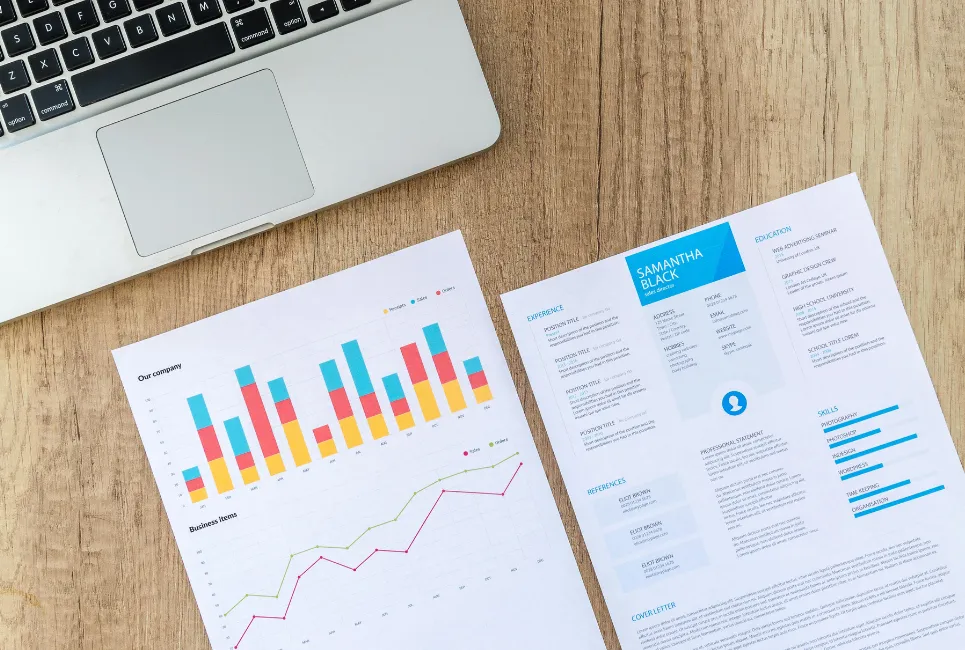
You can write your CV on a simple document like Microsoft Word. Or, you can go above and beyond with a free template on Canva, which can make your CV look professional and stand out.
You’ll also need to write a cover letter. This should explain:
- Who you are
- Why you’re applying for the position
- What your future career goals are
- What your relevant skills are
- If you have any previous work experience
- Why you are a good candidate
Make the cover letter specific to each role you apply for. Companies will be able to tell if you copy-paste the same letter to every role you’re applying for. Here are some more cover letter tips:
- Research: Ensure you know about the position and the organisation, and be specific about this in your letter. Show that you’ve done your research.
- Add your contact information: Your letter should include contact details at the top, including your full name, address, and postcode. You may also want to include your email address and phone number.
- Introduce yourself: Make sure you add some personality to the letter. Explain some of the basic details about yourself, like what you’re studying and why you’re interested in the role.
- Explain your goals: Tell your potential employer what your future career goals are.
- Highlight your qualifications: Discuss your studies, skills, and any previous experience.
- Talk about your interests: If they’re relevant, talk about your hobbies or interests. This includes hobbies that have taught you particular soft skills.
- Add a call to action: At the end of the letter, invite the hiring manager to contact you. You can tell them you look forward to hearing from them and let them know about your availability.
- Address and sign the letter properly: Make sure you address the letter to the recipient properly, including adding the date and address. At the end, sign with ‘sincerely’ or ‘best regards,’ and your name.
- Format your letter: There are plenty of helpful templates online to help you format your letter. Again, you can use Canva to find a professional template or make your own.
- Proofread: Always proofread your letter to identify grammatical errors and readability issues. After all, you need to seem professional and pay attention to detail.
Prepare for Interviews
Usually, you will need to do an interview before receiving your work experience placement. You may be interviewed by one, two, or multiple people.
Make sure you prepare for your interview by researching. You should be familiar with the role and the company to show hiring managers that you are prepared and knowledgeable, and also passionate about the role.
Aside from doing the relevant research, prepare for your interview by learning how to be professional. Make sure you select a smart outfit and research some interview tips to impress the hiring managers. For example, begin the interview with some small talk and ask your interviewers how they are. This will help you to seem approachable and confident.
During your interview, they will ask you probing questions. There will be a structure, with many of the questions being specific to the role in question. Expect to answer questions about:
- Why you are interested in the field or company
- Your suitability for the role
- What skills you have
- Technical questions related to the role
- Your relevant experiences
- Hypothetical questions about the role
Often, they will ask you follow-up questions based on your answers. You also may be asked to provide more detail or challenged on your answer. This isn’t a bad thing. Sometimes, interviewers want to test your opinions. However, if you think you might have genuinely said something wrong, it’s okay to backtrack and take a different route.
At the end of the interview, it’s always recommended to ask at least one question. You can ask your interviewers:
- What skills and traits their ideal candidate possesses
- What previous interns have done career-wise after their placement
- What they like most about the company
- How the company is engaging with a specific issue in the industry
During your pre-interview research, you might Google some industry-specific questions to impress your interviewers.
At the end of the interview, be polite with your interviewers. Feel free to make small talk and wish your interviewers a good evening or weekend as you leave.
How Volunteering Can Help You with Work Experience
Aside from traditional work experience placements, you can also try volunteering. Again, this involves an unpaid position tangentially related to your field of interest.
Volunteering can also help you gain the necessary skills for future employment, including teamwork and problem-solving in a real-world context. Plus, volunteering is an altruistic activity that shows you care about your community. This looks fantastic on a CV or university application–employers often value the commitment and passion demonstrated through volunteer work.
What’s more, you might meet people along the way who can help you get a foot on the career ladder. Remember, networking is a great way to find jobs.
How to Find Programmes That Offer Work Experience
Sometimes, finding relevant work experience in your desired industry is too tricky. This may be due to competitive applications, a lack of time, or other unforeseen circumstances.
In this case, it’s possible to find suitable experience through a work experience course.
For example, Immerse Education’s Career Insights programme can help you gain hands-on experience in industries such as Engineering, Fine Art, Business Management, Law, and several others. With work experience courses available in New York, London, and San Francisco, you can meet like minded people, engage with an industry you’re interested in, and meet experts.
Gearing up for the Future
As you embark on the journey of work experience in Year 10 and 12, look at it as more than a mandatory task. Instead, see it as an opportunity to challenge yourself and grow toward your future.
Whether you choose traditional work experience or an Immerse Education course, work experience is a fantastic way to develop your skills and shape your future academic pursuits. It goes far beyond embellishing your CV–it’s a way to gear up for your future and become your brightest self.







